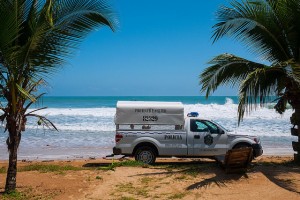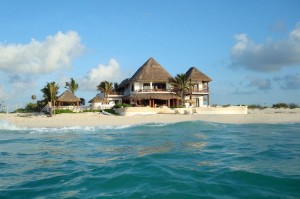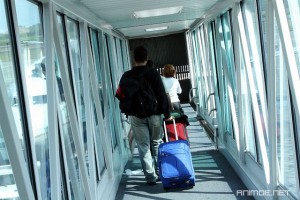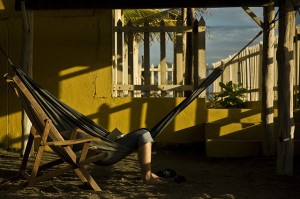Becoming an expat, living abroad and immersing yourself in a new way of life can be an exciting proposition. However, there can be some unpleasant shocks to being new in a foreign country, namely unexpected or higher costs for things that you hadn’t expected or budgeted for.
These increased expenses for the unwary or uninformed expat can have not only financial but also a profound emotional impact. Understanding the development cycle and educating oneself on how the locals spend and shop, can reduce this cultural sticker shock and ease your transition into the tropical lifestyle you had dreamed of.

Jasperdo
What the New Person Tax Is
The new person tax can be thought of as having two parts. The first part consists of those expenses that are necessary to establishing yourself as an expat in your new country. The second part is those prices that expats pay for goods and services that are higher than the local population.
While neither part is a “tax” in the true sense of the word, the unwelcome and unexpected costs of your new lifestyle can feel just as burdensome as a levy from a taxing authority. Here are some examples that illustrate what a “new person tax” is:
Moving Your Personal Property to Your Tropical Escape
Perhaps one of the biggest shocks many expats receive is when they discover just how much it will cost to bring their furniture, clothes, electronics, etc. into their new country. Each country has different rules regarding the dollar amount that can be imported by foreigners without having to pay taxes, or customs duties.
This is particularly important if you are considering bringing a vehicle into the country; registration, insurance, and licensing fees all run up the dollar amount that having your own personal transportation could cost.
An even bigger surprise comes when trying to find companies that will ship to your destination and how much it will cost. Factor in the time it may take to actually receive your belongings (and the costs that you may incur if you need to buy essentials to use while waiting) and the cost may stagger those who weren’t expecting it.
Real Estate Can Mean Real Costs
While many countries have very favorable laws governing land ownership by foreigners, the expenses involved in a purchase can go well beyond the purchase price. Retaining an attorney, paying for title searches, having documents translated, registration at the correct authority, transfer taxes (if applicable), and, of course, commissions, should all be considered as related costs.
Trying to actually learn what the purchase price of a parcel of land or a home is can be another money trap. Latin American countries do not have an MLS system and, as a result, properties can be advertised by multiple agents, at different prices, at the same time. It is not uncommon to find the higher prices listed on “gringo friendly” websites than on those favored by local residents.
Paying for utilities can also have unexpected financial consequences. Utility companies in paradise will often charge for service calls even if it turns out that the service can’t be installed or repaired. Simply put, expecting the same type of relationships with providers of electricity, water, cable, and internet that you would find in the U.S. (and at the same prices) is just not realistic.
Shopping Can Be a Challenge
Even the simple tasks of food or clothes shopping may eat unexpected holes in the budget. North Americans are often perceived as having endlessly deep pockets, so it is not uncommon for expats to be charged higher prices than the locals pay; this is sometimes referred to as the “gringo price.” This is especially true in the smaller markets where no prices are posted.
Some of the larger stores do carry items that cater to the expat community who want to purchase the same kinds of things they would find in their home country. The trade-off: prices for those imported items are often double or even triple what they would cost in the States.
For example, a simple 8 oz. bag of potato chips that might only cost $0.99 in the U.S., can cost $3.79 in your tropical destination. Trying to live like a gringo, while trying to be an expat, can be an expensive proposition.
For larger bulk items, such as building materials, there could be an even greater element of surprise. Barter is not uncommon throughout Central America and, for locals, this can also be a medium of exchange (i.e., lumber in exchange for working on the land, etc.).
Unfortunately, this kind of arrangement is usually not discovered by expats and, as a result, having to pay for supplies can drive up construction costs. Also, once supplies are purchased, it is often up to the buyer to figure out how to get them to the desired location.
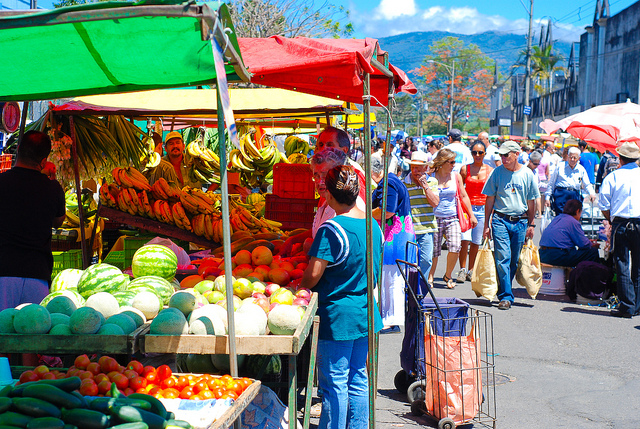
Everjean
How to Give Yourself a New Person Tax Break
The transition to expat status can seem almost overwhelming at times. However, there are some simple steps you can take to minimize the financial impact of being the “new person.”
Do Your Homework
There are many online resources that expats can use to learn about the real costs of moving to a desired destination. Make a list of questions that you would like answers to (remember, there are no stupid questions) and research the answers. The truth is out there, you can find it.
What Kind of Lifestyle Will You Have
It’s important to decide what kind of expat life you want to lead in your Latin American home. Are you planning on obtaining residency? Will you become a “permanent tourist” (travelling back and forth to the U.S. or elsewhere)? Rent, buy, or build? Each choice carries its own unique set of potential expenses; deciding how you are going to live makes it much easier to understand the potential budget concerns up front.
Connect with Others
With the number of expats growing by leaps and bounds, finding those who have successfully (or not) made the journey may be simply a matter of using one of the many social networking sites. Just reading about others’ experiences can provide valuable information that can translate into actual savings when you are in country.
Become a Part of Your Community
Perhaps the best way of avoiding the “gringo price” trap is to build relationships with the locals. Having friendly associations can provide you with help in finding the best places to shop, learning a new language (if you don’t speak Spanish), and generally providing a way to truly immerse yourself as part of the country, instead of being an outsider.
A Final Hint
There is always an element of the unknown in any new adventure. The old saying is true: You can’t guard against the arbitrary.
Becoming an expat may be one of the most profound experiences one can undertake in a lifetime. Embrace it, keep your expectations realistic, and remember that learning is growth. Visit those places that call to you and see if the time is right to take that first big leap of faith.
The recent attention Panama has been receiving as a great place for retirees points out why a Panama retirement is a valuable choice. For many baby boomers considering a move offshore, this tropical destination provides many options that other Latin American countries don’t offer.
With its close ties to the U.S., continued infrastructure improvements, and a vibrant historical and cultural atmosphere, Panama should be on everyone’s “short list” for retirement meccas. AARP has named Boquete, Panama as one of the top places to retire abroad. The growth in the real estate market in Boquete highlights the Panamanian potential as a long-term retirement or investment option.

Judy Chartrand
Why Is a Panama Retirement Such a Valuable Choice? The Reasons Are Below:
In the last several years, Panama has made a concerted effort to attract expats, especially retirees, to become part of Panamanian life. The results of this effort has definitely increased the extrinsic and intrinsic values of this Central American country as a retirement choice. Below are some of those highlights:
Panama Is the Complete Retirement Package
- Climate: Panama has a range of climate choices that can meet any retiree’s requirements. From the cool mountain temperatures of areas like Boquete and Santa Fe, to the tropical beachfronts of Panama City, to the island breezes of the Las Perlas and San Blas Island groups, finding that perfect blend of weather and temperature is far easier than in many other tropical locations.
- Culture: It is very easy to become immersed in Panamanian culture. The rustic towns, like David and Chitre, offer a welcome change from the larger urban setting of Panama City. The Azuero Peninsula, with towns like Pedasi and Las Tablas are widely recognized as Panama’s cultural and historical heartland that retirees are beginning to discover for themselves.
- Getting There Is Easy: Panama is easily accessible from the U.S. and Europe. With direct daily flights from fifteen U.S. cities, on international carriers such as United, Delta, American, and Copa, being able to fly to your tropical getaway is both affordable and easy to arrange. Domestically, Air Panama is expanding its service to new locations, such as Pedasi.
- Becoming a Resident Is Easier Than Ever: The Specific Countries Program that has been in place since 2012 has made it possible for holders of U.S., Canadian, and European passports to become residents within six to eight months. The process itself is relatively uncomplicated. Learning about the residency process and the straightforward requirements is just another part of understanding why Panama is a great choice.
- The Currency Is Familiar: Although Panama’s official currency is the Balboa, the country has been using the U.S. dollar as legal tender for all transactions for quite some time. Not having to negotiate currency exchanges or understanding how to convert the price of something into U.S. values not only is more convenient but also makes price comparisons easier as well.
- It Pays to Be a Retiree in Panama: Once you have qualified for the pensionado (retirement) visa, there are a lot of money-saving discounts that you can qualify for. Here is a partial list that clearly demonstrates how affordable retiring in Panama can be.

Magda Wojtyra
| Discounts |
| 50% discount on entertainment anywhere in Panama (movies, theatres, concerts)30% discount on bus, boat and train fares25% discount on airline tickets50% discount on hotels from Monday to Thursday25% discount on hotels from Friday to Sunday25% discount in sit-down restaurants
15% discount in fast food restaurants 15% discount on hospital bills (if no insurance applies) 10% discount on prescription medications 20% discount on medical consultations 15% discount on dental and eye exams 20% discount on professional and technical services 50% discount on closing costs for home loans |
Retirees are also entitled to a one-time tax exemption, up to $10,000, to import household goods. Additionally, there is a tax emption every two years for the purchase or importation of a personal vehicle.

Nelson de Witt
Panama Is a Great Place for Retirees to Invest and Prosper
Panama stands out as one of the very few Latin American locations where retirees can anticipate a strong return on their initial investment. Between a growing real estate market, favorable pricing, and active government support to make Panama an attractive place for expat dollars, the long-term potential for the growth of your retirement nest egg is strong.
- Increasing Housing Prices – Like most of the world, Panama’s real estate market suffered during the financial downturn of 2008. In the last few years the market has rebounded, making investing in property a solid proposition for financial growth and a good return on your initial purchase price.
While there are some areas where larger foreign developers have purchased large tracts of property based on the speculation of what they might be worth when fully developed, purchasing your retirement retreat can still be done for a reasonable price. The continued rise in property values will, in turn, add to the return you can expect when you decide to sell.
- Reinventing Yourself – Unlike its neighbors, Panama actively supports skilled professionals and investors who want to work and contribute to the Panamanian economical revival. Under the Specific Countries Program (mentioned above), obtaining a work permit is straightforward. The program is somewhat controversial, however, and checking with a skilled immigration attorney is an important step in the process.
- Favorable Real Estate Tax Structure – Property taxes in Panama are far less than those you would expect in the US. The tax basis is the value of the land and declared value of any improvements. The maximum tax rate is only 2.10%. Importantly, the government offers a generous property tax exemption for residential properties.
For properties whose value is $100,000 or less, taxes are exempt for 15 years; between $100,000 and $250,000, ten years and, for values above $250,000, five years. For most retirees, the prospect of not having to pay any property taxes for an extended period, translates into a tangible uptick on the money they will have to spend elsewhere.
Panama’s Value Combines the Tangible and Intangible Elements for Retirees
Taking the time to research the Panamanian potential should be a part of your retirement planning. As you look into what the country offers, visit and explore the various regions, and experience Panamanian life, you will truly understand the value that a Panama retirement can hold for you.
Traveling to, or living in, a foreign country can be an exciting and life-changing experience. However, theft can, and sometimes does, happen and that can turn that idyllic scenario into a nightmare. Learning some easy steps for keeping safe can save both time and money later on.
Understanding the reasons why theft is so commonplace, and how to guard against it, are important tools for anyone looking for a tropical escape to move to. By taking some simple precautions, you can protect your belongings and your peace of mind throughout Latin America and elsewhere.
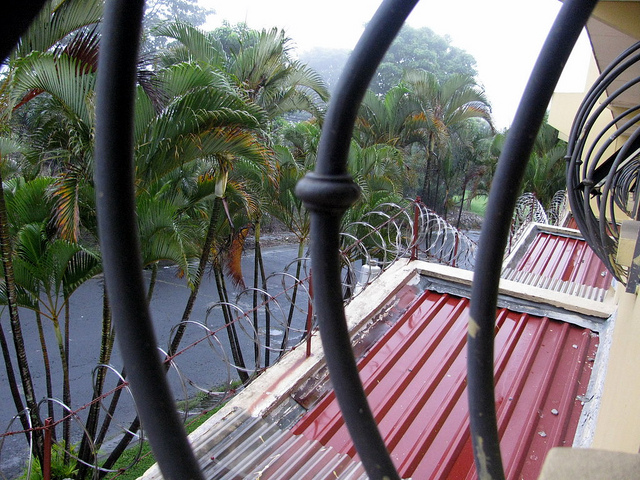
Alex Lane
Why Does Theft Happen to Expats?
First and foremost, the average income in most (if not all) Latin American countries is far less than the U.S., Canada, or Europe. This is not to say that these countries are poorer; a real argument can be made that for all that may be lacking in material or monetary measures, it is more than made up for in terms of a more relaxed and healthier lifestyle and outlook on life in general.
Nonetheless, when tourists, expats, and even seasoned investors visit these areas, they often become the focus of those individuals looking for expensive items (cameras, laptops, cell phones, etc.) that would not be otherwise obtainable. This is not much different than could be encountered in any tourist area in the world; just because the weather is tropical, and the pace is relaxed, doesn’t mean theft can’t or won’t happen.
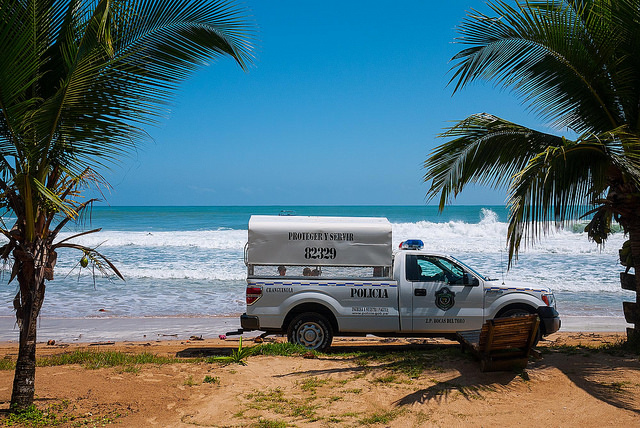
Magda Wojtyra
Enforcement Is Easier Said Than Done
A second major factor contributing to foreigners becoming the victims of theft is the simple fact that local police authorities are usually undermanned and often view property theft as a less serious matter. Even in those areas where there is an active police presence, such as beaches or resorts, the incidence of theft of personal belongings is still high.
Reporting a theft can be a challenge in and of itself. If you are not conversant in the local language, usually Spanish, trying to make a complaint can be a frustrating experience. Even calling 911 (or the local equivalent) may not generate a response for hours; again, this lack of a rapid response is not dissimilar to that in many U.S. cities.
Even if the police catch the thief, or thieves, the chance of getting your property back is slim to none. In many cases, when something is stolen, it is a crime of opportunity. If the thief can’t use it or sell it, the item(s) will be tossed by the side of the road or in the garbage. It also isn’t uncommon that these “banditos” are known to local authorities and could be let off with a stern warning not to do it again; suffice it to say, that’s a warning that falls on deaf ears.
Added together, these factors make it understandable why the potential for theft from tourists and expats is considerable. However, the existence of the problem does not make it an inevitable occurrence.
What Are Target Items?
Obviously, cash and credit cards are number one on thieves’ lists. Right behind those items are passports; there is a growing market for foreign passports, particularly U.S. and European, that has made these identification documents very desirable targets.
Electronics of all kinds, computers, laptops, tablets, digital cameras, cell phones, etc., have long been high on the list of items stolen. Even older models may be viewed as “new” in countries where the ability to buy such products is limited.
Finally, any other personal valuables such as jewelry, clothing, or even shoes can be targets. If it can be used or resold, it might be worth taking.
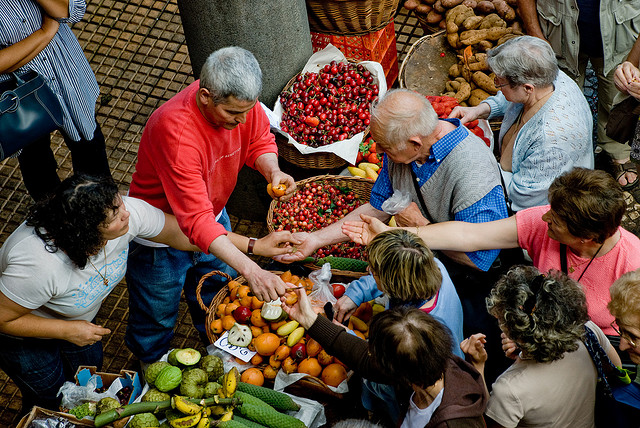
bartb_pt
Preventive Measures – Reduce Your Risk
There are a number of common-sense approaches to keeping safe throughout Central America. Some areas are safer than others, of course, and the same can also be said of most populated areas in the U.S. and Europe. But in a real sense, location does matter here – more than in other parts of the world.
Here are some tips to help you lower your “theft profile:”
Know Where You Are.
Learning what areas of the city, town, or village you’re staying in are the “rough” parts is often as easy as speaking to other expats, talking to local residents, or checking social media. Avoiding these locations or limiting the time you spend in them (if you have to/want to be there) is a major way to reduce your potential for being robbed.
Avoid Cash and Flash.
Leaving expensive items such as cameras, tablets, and cell phones out in the open is often an invitation to having them stolen. Too many times people will bring their electronics to areas such as the beach, leave them on their towels or beach chairs unattended and, upon returning from a swim in the ocean, discover that those items are gone. It may seem obvious not to do that kind of thing, but it does happen far more often than you might expect.
Similarly, flashing a large amount of money in places like clubs or bars is not a wise idea (in any location in the world). Just because you may not be paying attention doesn’t mean that others aren’t. A related matter would be leaving purses or wallets exposed without someone watching them; again, this happens far more than you might imagine.
Locks Are Good Things – Use Them.
For many expats, living in paradise means being more relaxed, not having to worry about security, and enjoying the tropical experience. This is certainly a romantic vision and one that, unfortunately, ignores some basic realities.
Always keep your car locked when you park it, especially in high tourist areas. Even with police being present, an unlocked car or truck is an open invitation. When there are crowds clamoring to see the sights, it is unrealistic to expect that security or police can (or will) watch everyone. On a related note, don’t leave valuables or luggage in your vehicle unattended; again, this is like putting a “welcome” sign to thieves looking for an easy score.
Even though it may feel wrong, use the locks on your residence. Expat residential areas are often scouted for those places where a simple, unlocked door can provide a gateway for the treasures within.
Keeping Safe Makes Life Easier
Being an expat, immersing yourself in new cultures, and enjoying the potential that life in the tropics holds can be the most rewarding experience one can have. Using common sense when it comes to you and your belongings can make your expat life easier and more enjoyable. The world is out there; travel safe and enjoy the journey.
Panama is becoming increasingly well-known as a top eco-tourism destination. Viva Tropical sat down with Oscar Peña Sanchez, Manager of Explora Ya, Boquete’s top eco-tour and adventure travel company to find out why Panama consistently ranks above the rest.

BGI
Please tell us briefly about Explora Ya and the adventures you offer.
Explora Ya is an eco-tourism company dedicated to providing not only tours but “EXPERIENCES”; we are a company with a beautiful goal and that is to show the best of Panama and the Chiriqui province. We want to have a positive impact on our community and every single traveler visiting us.
We value the big effort travelers make by taking the time off and also spending their savings to enjoy and get to know the culture of Panama in general, so the best way we can honor that is to make sure they leave Panama with positive and amazing experiences!
Much of Panama has an exploding eco-tourism scene. Can you explain to our readers why Chiriqui is especially important?
This is a very good question. Chiriqui is one of the most important provinces in Panama for a number of reasons. Because of its location we can be in the mountains of Boquete drinking one of the best coffees in the world and then after a short drive we can swim in the warm Pacific Ocean. Chiriqui is also very rich when it comes to food production. We always have the highest quality fresh green veggies.
Chiriqui is a very dynamic place to travel and now even more since Copa Airlines opened a connection flight from Tocumen Airport. So our travelers, if they plan well, don’t need to stay an extra night in the city to make it to Chiriqui, which helps save them some time and money.
The variety of weather is another big part of why Chiriqui is the best province to visit or retire in many cases. Boquete for example is around 3,473 ft above sea level, so the temperature here is always fresh, but not too cold, and people feel very relaxed. The weather is pretty much always the same since we are near the Equator.
What are the most popular areas for eco-tourism in Chiriqui?
To be honest, all of them! From Boca Chica you can take a boat and visit beautiful islands with white sand and amazing snorkel spots. You can see sea turtles, colorful fishes, and humpback whales from the months of July until early October. Also there are many other islands like Boca Brava and near the Chiriqui Gulf, which is growing very fast in terms of eco-tourism.
Boquete for sure is the most beautiful boutique town. This town literally has almost everything: a nice amount of good restaurants, several trails for people to hike or do the best bird watching. We have a good amount of trained guides to ensure amazing experiences and spot the best of it.
The Baru Volcano is the Giant and center of attraction for many hard-core hikers or people who enjoy adrenaline by going up on a Jeep 4×4 or ATVs. We celebrate the famous Baru Eco-fest which invites a lot of people to challenge themselves to go up and down in a short time but under supervision of security like paramedics and emergency groups.
Generally speaking, Chiriqui has a little bit of everything for everyone. Other destinations are great beaches like Las Lajas, and also Puerto Armuelles which is located near the border to Costa Rica and is getting more attractive for travelers and expats. It has great fishing and also nice beaches to swim in.
Tell us how Explora Ya is adapting to Panama’s eco-tourism growth.
Explora Ya is progressively making sure we promote more activities that involve being in touch with nature, but in a safe way for our environment. We are aware of how we can have either a positive or negative impact on nature, depending on how developed the activities are here.
I do remember when I got here almost six years ago eco-tourism was not that explored and there were not many options. It wasn’t so easy to spot a Resplendent Quetzal, which is a rare bird originally from Guatemala that has found home in the mountains in Chiriqui. This bird can be spotted from Cerro Punta to Boquete in several trails, and we make sure this bird and all the rest of them are protected.
It’s very much ingrained in the culture of Panamanians to adapt and take ownership of the natural reserves and be part of the growth in Panama.
Finally, what advice can you give to future visitors to Panama and especially to those who are planning a visit to Chiriqui?
First of all, planning ahead always is very helpful regardless of which activity you are going to do or which place you’re going to visit. Make sure you bring the gear necessary to fully enjoy Chiriqui. It is also very important to do research on different tour companies and make sure you always have a guide who’s certified by SINAPROC (National Civil Protection). After that just enjoy the ride!
Explora Ya is an official ATP Licensed operator. Its tour office is downtown in the heart of Boquete. You can find out more about the experiences they offer by clicking here.
A recent article in The Guardian noted: “Global debt has grown by $57 trillion to reach $199 trillion in the seven years following the financial crisis – a 40.1% rise, according to a new report.”
What this translates into is that global debt is now 286% of the world’s Gross Domestic Product, or GDP. GDP is the monetary value of a country’s (or in this case the world’s) finished goods and services that have been produced in a given time.
While these figures reflect the economic situation of governments, individuals too can be expected to feel the crushing impact of what is, obviously, an unsustainable debt load.
Under these circumstances, becoming an expat and owning property abroad is more than just a sound investment hedge against this economic shadow; it is a way of rediscovering what truly matters and having the opportunity to pursue those ideals.
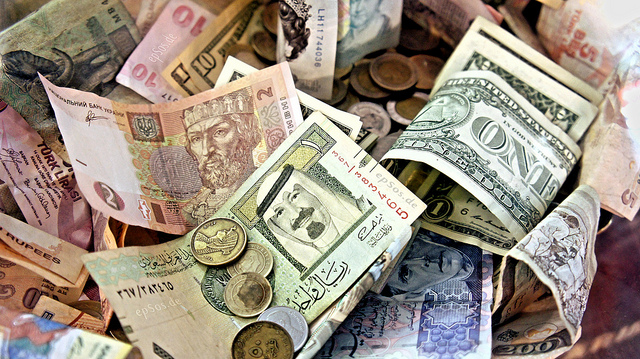
epSos .de
Why Global Debt Should Matter to You
Global debt has many far-reaching implications that transcend the international geo-political scene. Though usually referred to by the media (both mainstream and alternative) in terms of governmental policies, this massive borrowing bubble could profoundly impact individuals’ savings, retirement, and investment portfolios in ways that seem almost unimaginable. Below are several of the major reasons that global debt should matter to you.
Haircuts Are Coming into Style
Much reporting has been done on the recent debt crisis in Cyprus and the resulting “haircuts” that savers and investors endured. However, not many people truly understand what a “haircut” means.
In simple financial terms, a “haircut” means taking a loss on an investment i.e. to receive or accept less than the face value of what is owed. An example of this concept would be if a government borrowed money from institutions and was not able to pay it back. Instead, the government offers to pay only $0.25 on every dollar owed. A bond, with a face value of $1000.00 (the purchase price), would now only be worth $250.00. Investors who “loaned” money (in the form of purchasing government bonds), would have to take a “haircut” of $750.00.
The recent situation in Cyprus is a prime example of how “haircuts” can dramatically impact individuals. There, the government ordered that bank accounts, in excess of 100,000 Euros, would have to take a haircut of 37.5%.
Put another way, if someone had a banking account with 100,000 Euros, the cash value of that account (the amount that could be withdrawn) was reduced to 52,500 with the remainder being made up of shares in the bank that could only be sold at whatever the market value would be. In practical terms, 37.5% of those accounts is now gone and the remainder will be subject to the whims of the marketplace.
As global debt continues to grow, other governments, including the U.S. and other European nations, may consider similar approaches to make up their monetary shortfall.
Freezing Assets and Other Chilly Prospects
Imagine walking into your bank to make a withdrawal and being told that you couldn’t because the government was freezing all accounts. That is exactly what happened in Cyprus. In order to “stabilize” the financial situation, the Cypriot government essentially prevented depositors from taking any money out of the banks.
When money is deposited in a savings account, the bank agrees to pay interest on those funds in exchange for having those sums available to the bank; in a real sense, savings accounts are a kind of “investment.” What happened in Cyprus was that the banking system ended up “owing” more to the depositors than it had. As a result, the only way to avoid total collapse was to keep all the money.
Similarly, other investment options, such as stocks, are also vulnerable to rising debt. Purchasing stock is giving money to a company with the promise that, at a later date, those stocks could be sold for a higher price than they were paid for. If a company’s debt becomes too high, dividend payments (like interest in a bank account) may be withheld or cancelled and, in a worst case scenario, the stock becomes worthless and the whole investment is lost.
Money, Currency and Wealth – Three Different Things
Though the terms “money,” “currency,” and “wealth” are often used interchangeably, their actual meanings are vastly different. When talking about global debt, these differences matter a great deal.
Money can be basically defined as a medium of exchange between buyers, sellers, producers, and consumers of material goods. Currency refers to a particular monetary system used within a country or other political unit.
Wealth is, by far, the most nebulous of these three items. It is defined as the measure of valuable items. Wealth can also be extrinsic (money in the bank, personal property, etc.) or intrinsic – the actual value of something, not just its price tag. Global debt has created only extrinsic wealth that consists of numbers on a ledger. Those numbers often cannot be supported by actual value when investors want their return paid out.
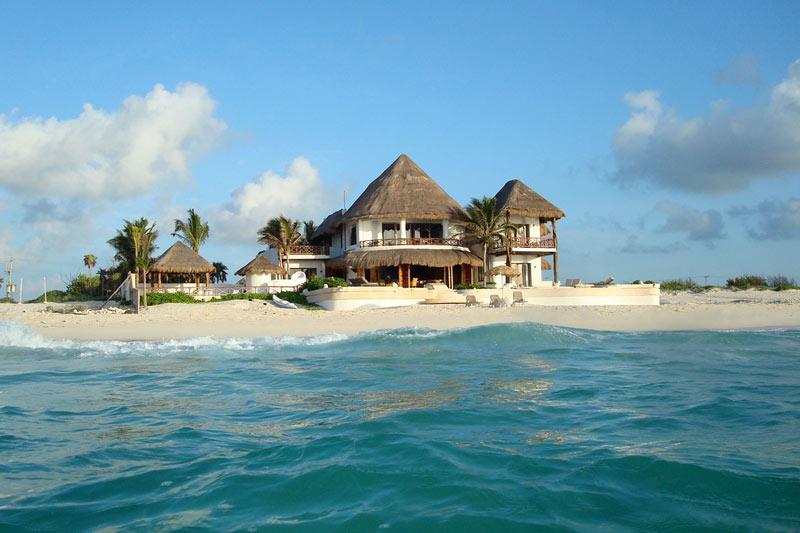
Playa Real
The Expat Advantage – Owning Property in Paradise
Aside from the opportunities to live abroad, immerse yourself in a new culture, live healthier, and rediscover yourself, there are real economic advantages to buying property in Latin America. Here are a just of few of those benefits:
Real Estate Is Both Real and Finite
There is an old saying that the reason property is so valuable is that they’re not making any more of it. As a result, land ownership carries a permanent value. Since it is a real, tangible asset, investing in it can be a real hedge against the growing debt crisis. Also, real estate has an intrinsic value; it exists, and it can be your paradise and security. Those are measures of wealth that far surpass anything on a balance sheet.
Central America Welcomes Expat Investment
Central American countries have actively created environments that promote expat investment. The rights of foreign property owners are, in many cases, identical to those held by a country’s own citizens. Favorable residency laws, discounts, and lower tax rates also make buying and living here a desirable alternative to staying in the U.S. or Europe.
There Are Bargains and Opportunities to Be Had
As the trend towards development sweeps through Central America, the affordability of property (especially parcels that are undeveloped or underdeveloped) is still quite good. For investors, this is an ideal situation where a lower initial outlay of funds can be expected to result in a good return on investment. Importantly, buying real estate in these tropical destinations carries much less risk than other options, such as stocks and bonds.

Best Jaco
Taking the First Step
Like any investment, buying and owning property in one of these tropical destinations does have challenges and some risks. Being an expat is not necessarily for everyone. Daring to reinvent oneself and rediscover the joys of learning a new culture and lifestyle may seem overwhelming.
How to discover if becoming a property owner in one of these tropical locations is right for you? Check out the kinds of residences, lots, and properties that are on the market. Above all, do some research and, if a country interests you, go there and visit – maybe more than once. You may discover that you don’t have to find paradise – paradise may find you.
With all the attention being focused on this area being a prime location for retirees and expats, many people are asking: Where is Panama? Discovering the special qualities of this country and learning about the potential there is a great way to decide if Panama is a place you should consider for your tropical escape.
Long overshadowed by its neighbors, Panama is coming into its own as a great place to invest, retire, or simply visit. With a streamlined residency program, easily obtained work permits, and use of the U.S. dollar as currency, Panama has become a prime location for investment, retirement, or reinventing oneself.

ThinkPanama
Answering the Geographic Question: Where Is Panama?
Panama is located at the end of Central America between Costa Rica and Colombia. The country is small – approximately 772 miles in length and only 37 miles wide at the most narrow part; this is roughly the size of the state of South Carolina.
This isthmus is the connecting link between North and South America and, of course home to the Panama Canal which connects the Atlantic and Pacific Oceans. Being so narrow, it is possible to visit both Atlantic and Pacific coasts in a single day.
When you visit Panama’s highest point, Volcán Baru, you are actually able to see both oceans at the same time. This is only one of three places on the planet that this is possible.

Mónica Mora
What About Getting There?
Panama is probably the most “connected” country in the region. In addition to the main international airport, Tocumen International Airport in Panama City, there are over thirty smaller regional airports throughout the country that handle domestic travel as well as charter flights. There are also three heliports in the country and plans to build an international airport on the Pacific Coast are under discussion.
Most major cities throughout Latin America and the Caribbean have regularly scheduled flights into Panama. Combined with flights from the United States, Europe, and South America, getting to Panama is easier than you might have thought.

Phossil .
Time and Distance
Looking at Panama’s location in relationship to other countries and cities is a great way to answer the question: Where is Panama? Below are some major cities, listed by continent, showing the distance from Panama and the time to fly to this tropical destination.
North America
| City or Town | Distance | Flight Time |
| New York City | 2220.69 miles | 5.5 hours |
| Miami | 1161.42 miles | 3 hours |
| Houston | 1765.98 miles | 4 hours |
| Los Angeles | 3006.67 miles | 7 hours |
| Chicago | 2328.52 miles | 5 hours |
| Atlanta | 1,727.29 miles | 4 hours |
| Mexico City | 1498.63 miles | 3.1 hours |
| Washington DC | 2075.57 miles | 5 hours |
| Toronto, Canada | 2395.88 miles | 5 hours |
South America
| City or Town | Distance | Flight Time |
| Rio de Janeiro | 3304.46 miles | 6.75 hours |
| Quito | 637.98 miles | 1.5 hours |
| Buenos Aires | 3317.48 miles | 6.75 hours |
| Caracas | 875.10 miles | 2 hours |
| Bogota | 462.2 miles | 1.1 hours |
| Lima | 1437.8 miles | 3 hours |
Central American and the Caribbean
| City or Town | Distance | Flight Time |
| Managua | 526.1 miles | 1.25 hours |
| Guatemala City | 841 miles | 2 hours |
| San Juan | 1112.6 miles | 2.5 hours |
| Havana | 1021.1 miles | 2.25 hours |
| San Jose | 318.85 miles | 1.1 hours |
Europe and Asia
| City or Town | Distance | Flight Time |
| London | 5292 miles | 11 hours |
| Paris | 5386.38 miles | 11.25 hours |
| Amsterdam | 5489.6 miles | 11.5 hours |
| Madrid | 5093.1 miles | 10.5 hours |
| Tokyo | 8418 miles | 17.5 hours |
| Rome | 5912.2 miles | 12.25hours |
| Sydney | 8806.58 miles | 22.5 hours |
And for Those Truly Wondering Where Panama Is in Relation to Important Global Points
| City or Town | Distance | Flight Time |
| The North Pole | 5603 miles | 12 hours if there were flights |
| Antarctica | 6564.22 miles | 13 hours if there were flights |
Where Is Panama in Terms of Your Future?
Knowing how far Panama is from major worldwide hubs, and how long it would take to fly there from those distant locations, is only one part of answering the question: Where is Panama? Begin by doing some research about this special country and decide where Panama is in terms of your ideas for retirement or investment.
Even better, plan a trip to Panama and see for yourself exactly where it may be located in your plans for investment, finding a place to retire, or becoming a favorite vacation spot. Panama is so much more than just a spot on the map; it may well be the dream location that you have been scouring the map to discover.
Congratulations! You’ve made up your mind to go expat. Your expat status is imminent. But there’s still a looming question repeating itself in the back of your mind. “What do I need to know that I don’t already know about expat living?” There’s only one answer. Read to succeed. Then write a book based on your own personal experience.
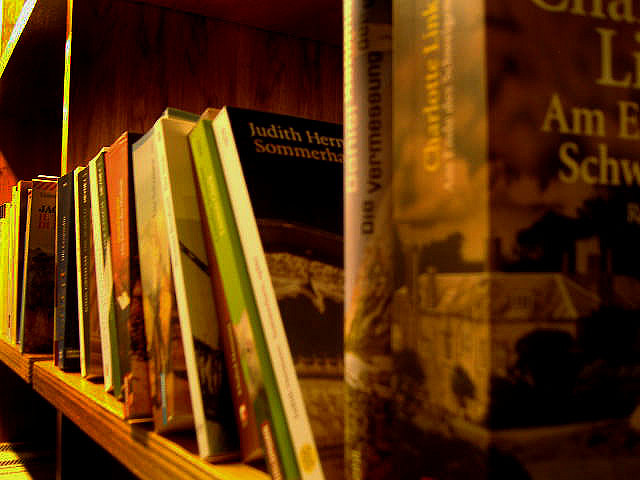
SMS
Read Expat Books
This was my advice to John and Jessica. John Ellington and Jessica Horne met in Ecuador during a college study program abroad. Three kids and twenty-one years later, they’re acting on their dream of moving abroad. John says once they started a family, he doubted they would ever make it happen. But Jessica’s desire to raise their kids outside the U.S. grew stronger as their middle child entered school. This year the Ellingtons decided to place their family home on the market. They knew the real estate sign in the yard would be the catalyst to focus them on the move. John and Jess spent their honeymoon in Ecuador. And they vacationed several times throughout the years in Central America. They fell in love with the Latin lifestyle and culture. They had no doubt they wanted to move to Central or South America. But like all soon-to-be expats, their minds were bombarded with questions. “Where’s the best place to rent or invest? How do we go about buying property? How can we grow our income?”
The Expat Learning Curve
John and Jess sensed they were facing a big expat learning curve. Investment incentives, education, cost of living, health care, residency and visa requirements were all crucial elements. Where could they find the answers? Who could help guide them to expat status? In his search for answers, John stumbled across Viva Tropical’s free eBook, Pay Dirt. Drawn there by the Adventure Colony Lifestyle in Panama, John had uncovered the expert expat advice he was so desperate for. But still the overriding question loomed: “What else do I need to know about expat living?” So, I referred John and Jess to expat interviews with expats on the ground in Panama. And I pulled together this list of expat guides and handbooks (which you can see on Pinterest) that all potential expats should find helpful.

Pete
8 Expert Expat Books You Must Read
These are based on real-life expat experiences. They cover issues and concerns that confront all expats in their move abroad.
1. The Expert Expatriate: Your Guide to Relocation Abroad
This book tells you pretty much everything you need to know about relocating abroad. Melissa Hess and Patricia Linderman detail what to do before the move, during the move, and how to settle in.
2. Retirement Without Borders: How to Think About Retiring Abroad–in Mexico, France, Italy, Spain, Costa Rica, Panama, and Other Sunny, Foreign Places
Author Barry Golson knows a lot about retiring in foreign places. He and his wife have lived in six beautiful countries. His how-to-guide covers major expat issues like health care, finances, real estate, taxes, and immigration. You’ll get the facts from Barry and his team of resident expat writers who now call these foreign countries “home.”
3. Living and Retiring in Cuenca: 101 Questions Answered
A soon-to-be Cuenca, Ecuador expat describes this book as an “invaluable resource.” He writes: “Connie has taken the information that has taken me over a year to gather and distilled it into a well-organized and enjoyable read.” Perhaps you know nothing about why Cuenca is called the “Emerald of South America.” Or maybe you know exactly why it’s a new hotspot for expat living. Either way you’ll benefit from the Q&A.
4. Costa Rica Chica
One reader described this book as “just plain fun reading.” She says the author “did a great job of bringing the reader right into their lives in Dallas, their process of deciding whether or not to move, and then their actual move.” In her early 40’s, Jen Seymour quit her job and sold everything. She and her husband, Greg, packed 9 suitcases and headed for Costa Rica to retire early and simplify their life. Find out how they did it and why they’re so happy they made the move.
5. The Gringo Guide to Panama
Business executive and world traveler Elizabeth Vance relocated to Central America in 2008. Elizabeth introduces you to the realities of expat life in Panama. Find out What to Know Before You Go (Book 1) and what More to Know Before You Go (Book 2).
6. Third Culture Kids, Revised Edition: The Experience of Growing Up Among Worlds
Some say this book explains exactly how they feel. A book about living your formative years outside your birth country. David Pollock will enlighten you and your kids about the emotional tolls of expat life on children. Learn how moving abroad impacts personal development and identity.
7. Here We Are There We Go–Teaching and Traveling with Kids in Tow
Jill Dobbe’s travel memoir details the trials and tribulations of traveling abroad with kids. Overseas educators Jill and Dan (and their young kids) travelled, lived, and worked in over 25 countries over 10 years, including a remote Pacific island and Africa. Their return to the U.S. with teenagers is living proof it can be done.
8.The Grown-Up’s Guide to Running Away from Home: Making a New Life Abroad
In this guide for mid-life adults moving abroad, Roseanne Knorr provides detailed advice on topics like how to choose a destination, finances, and maintaining family relations stateside. Access interviews with other expats and gain the courage to chase the overseas adventure you’re hungry for.
If you haven’t yet chosen your destination, you’ll want to subscribe to receive the Viva Tropical eBook, Top 50 Places, coming soon. This new expert expat book will provide information on how to choose a destination, cost of living and finances, international health care, and working abroad. Meanwhile, visit the Viva Tropical Book Store for more recommended expert expat books. And I wish you all the best for your expat journey!
Expats and retirees have been retiring in Costa Rica for many years. The obvious benefits – great weather, beautiful beaches, and growing expat communities are well known. But some of the best things about relocating to this Central American paradise are those you might have never considered.
Finding information about Costa Rica and what it offers is easier than ever before. Discovering the potential that it holds is a journey that varies from person to person.

Oha
Hidden Gems in a Costa Rica Retirement
Some of the best aspects of retiring in Costa Rica are intangible in nature. Along with those features, Costa Rica does have many opportunities to reinvent yourself or invest in the future; truly a number of ways to make those “golden years” even more golden. Below are some of those things you might not have thought of when considering a Costa Rica retirement.
The Rhythm of Life
There is something that happens to people when they move to Costa Rica. Time takes on a different perspective and you find yourself feeling less urgency about getting things done.
This, in turn, reduces stress and allows the body and the mind to truly relax. Modern medical science has shown that lower stress has a variety of health benefits. In a real sense, the Costa Rican lifestyle can add years to your life and provide a better understanding of what truly is important and what is just “small stuff.”
Fewer Processed Foods Means Healthier Eating
Unlike the U.S., Canada, and Europe, there are far fewer processed foods to be had in Costa Rica. With the absence of golden arches on every corner (metaphorically speaking), food choices tend to be healthier with local fruits and vegetables taking the place of the products of large commercial farms.
Almost by default, you will find yourself eating less and eating healthier than you might back in the States. If you’re worried about dieting, retiring in Costa Rica can be one of the easiest ways to shed those pounds and those bodily toxins.
Paradise Is Easier to Reach Than Ever Before
One concern many expat retirees have is being able to visit their families back in the States or having family members visit them in their tropical escape. Costa Rica may just be the most accessible Central American country in terms of flights to and from the U.S., Canada, and Europe.
With two modern international airports, one in San Jose, the other in Liberia, finding affordable flights to and from most major cities is as simple as the proverbial click of a mouse. Importantly, as Costa Rica’s popularity continues to grow, more carriers are scheduling flights or expanding existing operations, which makes staying connected easier than you might think.
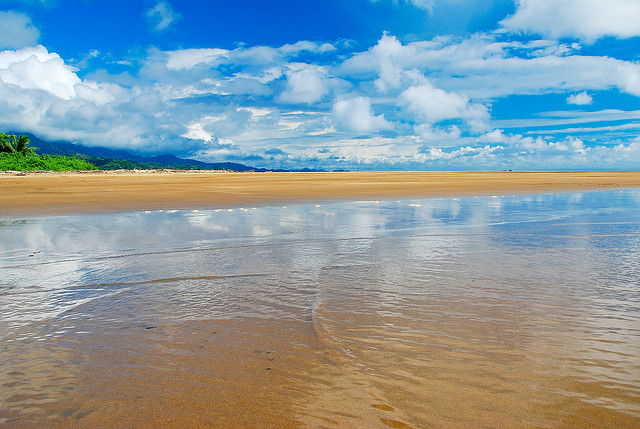
Didier Baertschiger
And, Speaking of Staying Connected…
Costa Rica continues to expand and improve its cable, cellular, and internet services. High speed internet access is readily available throughout much of the country – something that is unique among its Latin American neighbors.
Cable and satellite services carry many U.S. channels and shows and offer packages similar to those found in the States. There are also choices in cellular phone services that cover most of the country. Being able to stay connected to those back home, while enjoying the pleasures of a tropical retirement, is truly the best of both worlds.
Be One With Nature
Finding a retirement destination that is clean, eco-friendly, and dedicated to preserving all of the beauty of the natural world is a dream many expats have. Costa Rica has consistently been ranked as one of the cleanest and “greenest” countries in the world. Being one with the environment is an aesthetic benefit that can and does enrich the concept of what retirement is all about.
Costa Rica has been mentioned as one of the Blue Zones (those places where the lifestyle and environment are conducive to longer lives). When you choose a Costa Rica retirement, you may also discover that there are more years (and adventures) that await you than you could have dreamed of.
Beach, Rustic, Mountain, Cosmopolitan? So Many Lifestyle Choices
Costa Rica is definitely not a “one size fits all” destination for your retirement. Containing pristine beaches, small rustic “tico” villages, stunning mountain vistas, secluded tropical rainforests, and modern, cosmopolitan cities, you can truly customize the kind of retirement lifestyle that you are seeking.
Whether you are looking for established expat communities, like those in Escazu; the quiet mountain villages of the Central Valley; the beach lifestyle of Tamarindo, Jaco, or Playa Flamingo; or the laid-back Bohemian vibe found in places like Nosara, your retirement choices are more diverse than in other tropical locations. The choice, truly, is yours.
Potential for a Good Return on Retirement Investment
Although Costa Rica has been on the radar of expats and retirees for over a decade, there are still plenty of investment opportunities that exist. There are both residential and commercial properties throughout the country that could provide the opportunity to grow your investment/retirement dollars.
The improvements in infrastructure, such as the new (2010) highway along the Pacific coast, have opened up new areas for development. Uvita, Dominical, and other locations in the southern Pacific zone have become destinations for those looking to build their own tropical retreat and/or investment projects.
Stable Government Means No Expat Surprises
Costa Rica is in the enviable position of having one of the most stable governments throughout Latin America. For retirees, this stability translates into a security that there won’t be any surprises in terms of changing policies that have created uncertainty for many expats in other countries.
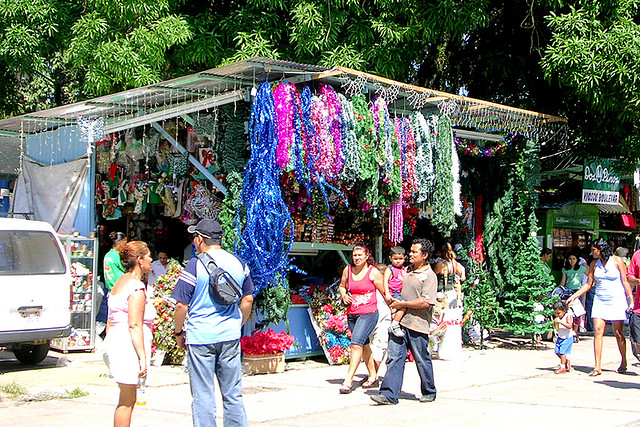
Roger
It’s About the Benjamins…
The U.S. dollar is accepted throughout much of the country, making shopping and other transactions easy. There are any number of ATMs throughout the country that you can access both colones (the Costa Rica currency) or U.S. dollars.
The knowledge that you can get to your funds easily and conveniently adds a layer of security for retirees who may be concerned about the ability to replenish their cash from time to time. Also, most major credit cards, such as Mastercard and Visa are also accepted at stores and restaurants as readily as they would be back home.
The People
Last, but by no means least, are the people of Costa Rica – the ticos and ticas. Friendly and welcoming, Costa Ricans can make your transition to a retirement life in paradise easier than you could imagine.
It is often said that Costa Rica is one of the happiest places on earth. The people who live in this Latin American gem certainly are proof of that.
Discover These Treasures for Yourself
It is a testament to all that Costa Rica offers that it remains as one of the most desirable places to retire on Earth. Take the time to visit this unique Central American destination, research the possibilities, and see for yourself what a “pura vida” retirement could be like.
If you check out the lists of the best places to retire or live as an expat, you’ll see one location come up again and again: Panama City, Panama. Unlike many large metropolitan centers in Latin America, Panama City is a true first world city, boasting all the modern conveniences you would expect in places like San Francisco or New York.
You’ll be able to take for granted things like international banking, top-notch health care, and high-speed Internet in Panama City, while appreciating its proximity to some of the most beautiful natural spots in the world and two coastlines to explore. And you can still take advantage of the reasonable cost of living most people associate with the Latin Tropics.
Here’s a look at why Panama City, Panama, is such a popular expat destination.

Hectorlo
Welcome to a Vibrant, Modern City
Located at the western end of the Panama Canal, Panama City is known for being a rare first world Latin American city. With a population of just under a million people, its impressive steel and glass skyline overlooking the Bay of Panama could easily trick you into thinking you’re in Miami. In fact, if you read on, you’ll see that Panama City has much in common with the Miami of just a few decades ago, which bodes well for expats making it their new home.
The roads in Panama City are in great shape, and it is easy to find outpatient and hospital care there on par with U.S. standards. Numerous international corporations are headquartered there, and Panama City is also home to artists from around the globe. Each year Panama City hosts festivals celebrating jazz, dance, and film, and if you like to go out at night, there is no lack of entertainment.
Across the bay, close to downtown, visitors and locals alike can be found soaking up culture and cuisine in Casco Viejo, the old city. Built upon a seawall to defend the city against pirates, Casco Viejo is undergoing a major renovation, giving a facelift to historic buildings and providing a lively contretemps to the skyscrapers nearby.
Outdoor enthusiasts need look no further than than the outskirts of the city to find amusement. Water sports abound, and Panama is home to some of the best bird watching on the planet. Go east or west – either way you’ll hit some spectacular coastline worth making the focus of your next vacation. And if you’re a sports fiend, you don’t even have to leave Panama City to find soccer matches and golf courses to make your friends at home drool.

World Bank Photo Collection
Panama Is Growing
Panama was founded in 1519, and it has a rich history. But the real growth of Panama occurred after the end of the Noriega dictatorship and the return of the Panama Canal zone by the U.S. in 1999. Old U.S. military bases have been turned into stunning residential neighborhoods. While most of the rest of the world has languished during the recent financial downturn, the Panamanian economy has expanded by nearly 50%.
Panama is eager to attract commerce, expats, and tourists. A$5.25 billion renovation of the Panama Canal is expected to double its capacity. In the late 1990s, Panama City had only a few thousand hotel rooms; it now offers more than 15,000, with another 4,500 in the works, many with major chains.
You’ve probably heard that Panama City, Panama, is a popular expat locale. That it is, and not just with those escaping the U.S. The city is full of German, Chinese, and French influence, among others, and its international flavor is a fitting reflection of the canal that has linked two sides of the world for generations.
Food and hospitality are a common place to see this global influence, and it is here that the comparison with Miami in the late ’80s is often made. Urban Panamanian cuisine is still developing, but it will likely be a eclectic mix of the best of all world cultures with indigenous ones.
Panamanian food is not as spicy as what you find in other Latin American countries, and much of it features corn products. Seafood and fish are abundant, of course, with Panama’s ability to pull fresh catches from both coasts.
In spite of its tremendous growth, Panama is still geographically small enough that you can get a good taste of its varied topography and microclimates without having to travel very far. (You can still actually run into monkeys and anteaters within the Panama City limits.)
In the space of a few days, you can experience the big city, beach relaxation, and rural mountain life. Don’t like the climate where you are? Drive to the coast for a breeze or spend a few cool nights in the hills before heading back to the year-round heat of Panama City.

Steven Downers
Panama City, Panama, Has a Reasonable Cost of Living
Sometimes in Latin America, low cost of living comes at the expense of quality of life, modern amenities, or political stability – not so in Panama City. There you can find high quality living quarters that are within the means of someone subsisting on a pension or retirement benefits. A couple can live on about $1,500-2,000 per month in Panama City, and approximately half of that would be devoted to rent.
The more you can live like a local, the more money you can save. Eating foods grown nearby, using public transportation, and taking advantage of local entertainment, like in Casco Viejo, will not only make it easier on your wallet, it will truly enrich your expat experience. You don’t want to move to a foreign country just to replicate your life in the U.S. – you want to transplant some basic amenities in a new and exciting culture. This is the appeal of Panama City.
One of the amenities you won’t have to sacrifice is health care. Panama City has very cheap but high quality health care. Hospital Punta Pacifica, for example, is affiliated with Johns Hopkins but runs about 50% of the bill. Clinica Einstein in El Cangrejo is a smaller facility, but it offers most of the same services for half again what Punta Pacifica charges.

Irving Martínez
Panama Has Low Barriers to Residency
One of the things that makes the country of Panama so attractive to expats is how easy it is to move there. In fact, Panama has become so popular that it can sometimes take longer than expected to work out long-term visa applications, so it is wise to plan in advance as soon as you know what type of visa you want.
Panama has numerous visa options, some of which include routes to Panamanian citizenship, should you desire it. To dip your toe in the water, start with a 90-day tourist visa, which is renewable if you’d like to stay longer. There are also visas for retirement and business investment that require proof of financial stability.
Buying property in Panama is fairly straightforward. It is suggested to use a local attorney, however, to make sure you have all the laws covered and to help complete documentation that must be done in Spanish. The currency in Panama is the U.S. dollar (sometimes called a Balboa), so there are no exchange rate risks there.
Driving in Panama is quite similar to the U.S.:
- Traffic moves on the right side of the road.
- Drivers are required to have insurance.
- Driving while talking on a cell phone is illegal.
- Children must be secured in appropriate car seats.
A foreign drivers license is valid in Panama for 90 days, after which it must be converted to a Panamanian license. While traffic in Panama City can be as challenging as any large urban area, it can be nice to have a car to tour surrounding beach and mountain destinations.
Panama is in an ideal location, as it is an easy gateway to South America. But it’s not too far from the States either – just a couple of hours from Miami – which makes it easy for friends and family to pop down for a visit.
Panama City’s Tocumen International Airport has been recently expanded, and there are daily flights in every direction. To see if Panama City, Panama, is the right spot for you to unpack your expat life, grab a flight, book a boutique hotel, and spend a week exploring local life. You won’t be disappointed!

















